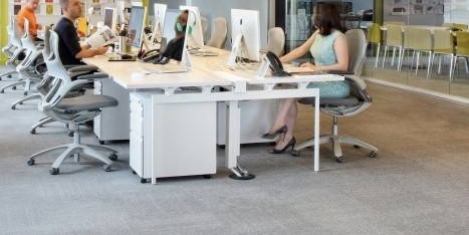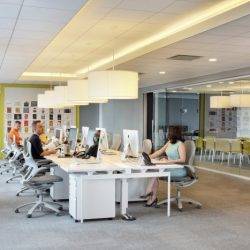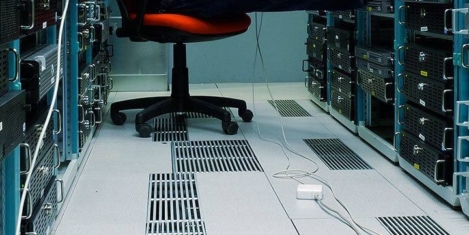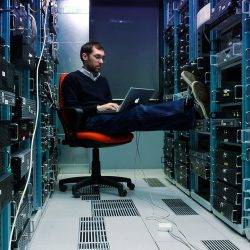March 8, 2017
Fall in number of senior business roles held by women in the UK 0
 A new report to mark International Women’s Day claims that the proportion of senior business roles held by women in the UK has fallen from 21 percent in 2016 to 19 percent in 2017. The report, based on Grant Thornton’s annual survey of 5,500 businesses in 36 economies, also found that the percentage of businesses in the UK with no women in senior management has also risen from 36 percent in 2016 to 41 percent in 2017. This is still an improvement on other EU countries with a lower proportion of senior roles held by women: Germany (18 percent), UK (19 percent), Greece (20 percent) and Netherlands (20 percent)Globally, the proportion of senior business roles held by women has hit a high of 25 percent. However, the findings suggest that progress is slow, with an increase of only 1 percent compared to 2016. Globally, the proportion of senior business roles held by women increased 1 percent from 2016, but that’s only up 6 percent since start of research 13 years ago, in 2004 (18 percent), showing how little progress has been made over the past decade. The research claims that the countries with the highest proportion of senior roles held by women are Russia (47 percent), Indonesia (46 percent) and Estonia (40 percent). The UK had the fifth lowest proportion of women in senior business roles, with Japan recording the lowest (7 percent) and Argentina second lowest (15 percent). (more…)
A new report to mark International Women’s Day claims that the proportion of senior business roles held by women in the UK has fallen from 21 percent in 2016 to 19 percent in 2017. The report, based on Grant Thornton’s annual survey of 5,500 businesses in 36 economies, also found that the percentage of businesses in the UK with no women in senior management has also risen from 36 percent in 2016 to 41 percent in 2017. This is still an improvement on other EU countries with a lower proportion of senior roles held by women: Germany (18 percent), UK (19 percent), Greece (20 percent) and Netherlands (20 percent)Globally, the proportion of senior business roles held by women has hit a high of 25 percent. However, the findings suggest that progress is slow, with an increase of only 1 percent compared to 2016. Globally, the proportion of senior business roles held by women increased 1 percent from 2016, but that’s only up 6 percent since start of research 13 years ago, in 2004 (18 percent), showing how little progress has been made over the past decade. The research claims that the countries with the highest proportion of senior roles held by women are Russia (47 percent), Indonesia (46 percent) and Estonia (40 percent). The UK had the fifth lowest proportion of women in senior business roles, with Japan recording the lowest (7 percent) and Argentina second lowest (15 percent). (more…)









 Fostering behavioural change among employees to encourage them to make healthier lifestyle choices could deliver both productivity gains and economic growth, a new report claims. According to Human-Centric Health: Behaviour Change and the Prevention of Non-Communicable Diseases, by the World Economic Forum in collaboration with Willis Towers Watson, behavioural economics will be critical to encourage healthier lifestyles and reduce the burden of non-communicable diseases (cardiovascular disease, mental illness, cancer, chronic respiratory disease and diabetes) that account for approximately 16 million premature deaths annually and will cost an estimated cumulative loss of $47 trillion in economic activity worldwide over the next two decades. According to the analysis, technology such as mobile phones with accelerometers that make activity challenges easier and engage individuals in a community of supportive peers will improve people’s understanding of health-related knowledge and encourage them to reshape their behaviour. Linking individuals to ‘commitment contracts’ to exercise, quit smoking, or adhere to medicine prescription schedules will also be easier to monitor using sensors and mobile technology.
Fostering behavioural change among employees to encourage them to make healthier lifestyle choices could deliver both productivity gains and economic growth, a new report claims. According to Human-Centric Health: Behaviour Change and the Prevention of Non-Communicable Diseases, by the World Economic Forum in collaboration with Willis Towers Watson, behavioural economics will be critical to encourage healthier lifestyles and reduce the burden of non-communicable diseases (cardiovascular disease, mental illness, cancer, chronic respiratory disease and diabetes) that account for approximately 16 million premature deaths annually and will cost an estimated cumulative loss of $47 trillion in economic activity worldwide over the next two decades. According to the analysis, technology such as mobile phones with accelerometers that make activity challenges easier and engage individuals in a community of supportive peers will improve people’s understanding of health-related knowledge and encourage them to reshape their behaviour. Linking individuals to ‘commitment contracts’ to exercise, quit smoking, or adhere to medicine prescription schedules will also be easier to monitor using sensors and mobile technology.






 The majority (79 percent) of workers say reliable and modern technology is more important to them than office aesthetics, while accessories such as ping pong tables, slides, hammocks and wacky office designs may look good in pictures, but they don’t necessarily make employees any happier or productive. The is according to a survey, conducted by storage firm Kiwi Movers, which found that 86 percent of UK adults who work in an office said fun features were of no specific value to their working life, 11 percent said they were nice-to-have and of some value and 3 percent said they were very valuable. The most popular office perks are those offer an immediate tangible benefit to the employee, but even so, as many as 23 percent don’t take advantage every day; while 71 percent overall said they’d like more space in their office and of those, 58 percent believe that could be achieved by removing non-essential items. The research also found that younger workers were more likely on average to take advantage of ‘environmental’ perks like chill out areas and recreational equipment.
The majority (79 percent) of workers say reliable and modern technology is more important to them than office aesthetics, while accessories such as ping pong tables, slides, hammocks and wacky office designs may look good in pictures, but they don’t necessarily make employees any happier or productive. The is according to a survey, conducted by storage firm Kiwi Movers, which found that 86 percent of UK adults who work in an office said fun features were of no specific value to their working life, 11 percent said they were nice-to-have and of some value and 3 percent said they were very valuable. The most popular office perks are those offer an immediate tangible benefit to the employee, but even so, as many as 23 percent don’t take advantage every day; while 71 percent overall said they’d like more space in their office and of those, 58 percent believe that could be achieved by removing non-essential items. The research also found that younger workers were more likely on average to take advantage of ‘environmental’ perks like chill out areas and recreational equipment.















March 8, 2017
In a crowd of truths, we can discern and reclaim what it means to be human 0
by Neil Usher • Comment, Facilities management, Technology, Workplace design
(more…)